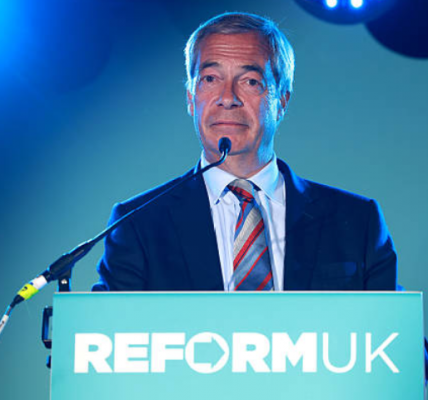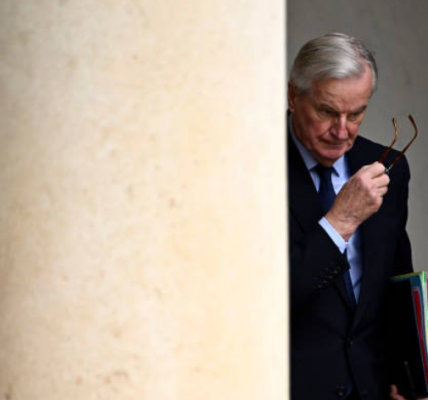After a total of 39 years of Peronist rule, Argentine voters have rejected this norm and leapt into the unknown after Javier Milei’s successful election campaign in December last year. Milei represents a new form of politics in Argentina and globally, describing himself as an ‘anarcho-capitalist’, that being a proponent of the liberal right-wing. Milei’s rise to power represents not only a rejection of Peronist and left-wing collectivist thought but also underlines the fact the majority of Argentineans believe that more drastic measures must be taken to rescue Argentina’s crumbling economy.
The economic state of Argentina that Milei has inherited can be characterized as dire. In addition to the weakness of the Argentine peso, which was devalued by 18% in a single day in August of 2023 (Glover, 2023), inflation rates soared up to 211.4% (Trading Economics, n.d) in December 2023 and have been persistently over 100% since February of that year. As well as this, the Argentine economy remained susceptible to market shock, with foreign exchange reserves plummeting to around 17 USD million in September from around 21 USD million only 2 months before (Trading Economics, n.d). However, the economic situation that Milei has inherited is fractured not solely due to Peronist monetary policy, but socially through the existence of the “dollar blue”, an unofficial, black-market currency that is deemed to be the “most commonly accessed rate among Argentines”, representing the clear sense of mistrust in Argentinean institutions such as the central bank (Stewart, 2023). Overall, it’s fair to say that Milei has his work cut out for him, the response to his proposal to fix this situation, however, has been incredibly polarizing.

Pictured here (Sarmenti, 2023) is Javier Milei wielding a chainsaw, a perfect representation of his economic policies, cut everything. As a self-proclaimed anarcho-capitalist, Milei’s policies are based on his view that government intervention, or bigger government, are and have been detrimental to the Argentine economy. Instead, Milei seeks to promote libertarian economic policies through “shock therapy”, extreme austerity, and cutting government institutions to the bone.
‘Shock therapy’ in this case refers to Milei’s plan to shift Argentina’s economic policy swiftly, from collectivist economics to libertarian, cutting government spending through a reduction in fuel and transport subsidies (Tewari, 2023) and slashing 9 government ministries (Tewari, 2023), thus reducing the number of jobs in the public sector by 34% (Tewari, 2023). Furthermore, according to Financial Times, in order to control inflation Milei has employed “increasingly aggressive interest rate cuts” in an effort to stop hyperinflation through excessive printing of money (Nugent, 2024), as well as promoting the notion of the ‘dollarization’ of the peso, that being essentially scrapping the Argentinean central bank and giving the US federal reserve full autonomy over monetary policy (Cooban, 2023), although these policies have been put on hold recently due to Milei’s lack of a majority in Congress (Plummer, 2024). These policies of devaluation, according to the IMF, are set to “boost net foreign reserves to 10 billion by year-end” (IMF, 2024), thus limiting Argentina’s susceptibility to market shock or crashes. These ‘positive’ changes, in the view of the IMF, have allowed Milei to access a further 4.7 billion-dollar loan, which will assist in Milei’s goals of tackling inflation within Argentina (Nugent, 2024). It is evident that the policies underlined here are drastic, however, the question remains as to whether they are enough to stop a fourth Argentine financial crisis in the 21st century, and what effects they’ve had so far.
Since coming to power, Milei’s reforms have had some positive effects, extreme austerity measures have led to the Argentine government reporting a fiscal surplus for the first time since April 2012 (Plummer, 2024). Moreover, In terms of inflation, Argentina saw its first non-double-digit inflation rate since October of last year (Plummer, 2024). Despite these factors however, the devaluation of the peso has contributed to the cost-of-living crisis, with fuel prices increasing by 60%, and according to the Social Observatory of the Catholic University, has caused a rise in poverty of 12% since Milei came to power (Käufer, 2024). Moreover, Milei’s drastic measures to rectify the mistakes of past governments, namely his harsh austerity measures, have been met with resistance in the form of riots outside the national congress in June of this year, with proponents of the left chanting “Our country is not for sale” and waving flags depicting the face of Che Guevara, an Argentine socialist icon. (Singh, 2024)
Although according to the government “the situation will get worse before it gets better” (Wells, 2024), the harsh realities of the consequences of economic shock therapy are now more and more evident. Still, according to The Economist, Milei retained around a 50% approval rating in March of this year (The Economist, 2024), denoting the fact that many Argentines still believe that the true effects of Milei’s reforms are yet to come to pass. As is the case with the employment of neoliberal ‘shock therapy’, more time is needed to know as to whether Milei’s reforms will bear the fruit of his promises, or whether the cost-of-living crisis will tank his approval ratings to the point of no return, time will tell.
_________________________________________________________________________________________
Bibliography:
- Ioanes, E. (2023, December 17). Argentina’s new president, Javier Milei, explained. Vox. https://www.vox.com/world-politics/2023/12/17/24003970/argentina-president-javier-milei
- TRADING ECONOMICS. (n.d.). Argentina inflation rate. https://tradingeconomics.com/argentina/inflation-cpi
- TRADING ECONOMICS. (n.d.-a). Argentina Foreign Exchange Reserves. https://tradingeconomics.com/argentina/foreign-exchange-reserves
- Glover, G. (2023, November 11). This is the world’s next major election. The winner has to fix chronic hyperinflation and halt a 6th recession in 10 years. Business Insider. https://www.businessinsider.com/economy-argentina-hyperinflation-drought-rolling-recession-dedollarization-javier-milei-peso-2023-11
- Squires, S. (2023, August 13). A beginner’s guide to understanding Argentina’s multiple exchange rates. Bloomberg Línea. https://www.bloomberglinea.com/english/a-beginners-guide-to-understanding-argentinas-multiple-exchange-rates/
- Stewart, E. (2023, March 23). What it looks like when a country doesn’t trust its banks. Vox. https://www.vox.com/money/2023/3/23/23649926/argentina-economy-explained-dollar-blue-inflation
- Tewari, S. (2023, December 13). Argentina peso: Milei begins “shock therapy” by devaluing currency. BBC News. https://www.bbc.co.uk/news/business-67688727
- Nugent, C. (2024, May 23). Financial Times.https://www.ft.com/content/401a85e5-e144-496d-b329ab9d2eabaecd#comments-anchor
- Cooban, A. (2023, October 23). Javier Milei wants Argentina to swap the peso for the US dollar. Here’s what that could mean | CNN Business. CNN. https://edition.cnn.com/2023/10/23/business/javier-milei-argentina-dollerization-explainer/index.html
- IMF (2024, February). ARGENTINA SEVENTH REVIEW https://www.imf.org/-/media/Files/Publications/CR/2024/English/1ARGEA2024001.ashx
- Plummer, R. (2024, June 9). Have Milei’s first six months improved the Argentine economy? BBC News; BBC News. https://www.bbc.co.uk/news/articles/cm55yv0g0veo
- Käufer, T. (2024, March 18) Argentina: Milei’s first 100 days of hope and concern. https://www.dw.com/en/argentina-javier-mileis-first-100-days-of-hope-and-concern/a-68606230
- Wells, I. (2024, February 16). Javier Milei: Argentines wait for “crazy” president’s shock therapy to work. BBC News. https://www.bbc.co.uk/news/world-latin-america-68287245
- Singh, N. (2024, June 13). Argentina’s riot police clash with protesters in capital’s streets over president Javier Milei’s reforms. The Independent. https://www.independent.co.uk/news/world/americas/argentina-reform-debate-anti-government-protest-b2561729.html
- The Economist. (2024, March 19). After 100 brutal days, Javier Milei has markets believing. The Economist. https://www.economist.com/the-americas/2024/03/19/after-100-brutal-days-javier-milei-has-markets-believing
- Sarmenti, S. P. P. (2023, October 1). The “chainsaw” candidate challenging Argentina’s left and right. CNN. https://edition.cnn.com/2023/10/01/americas/chainsaw-candidate-argentina-javier-milei-hnk-intl/index.html







👍